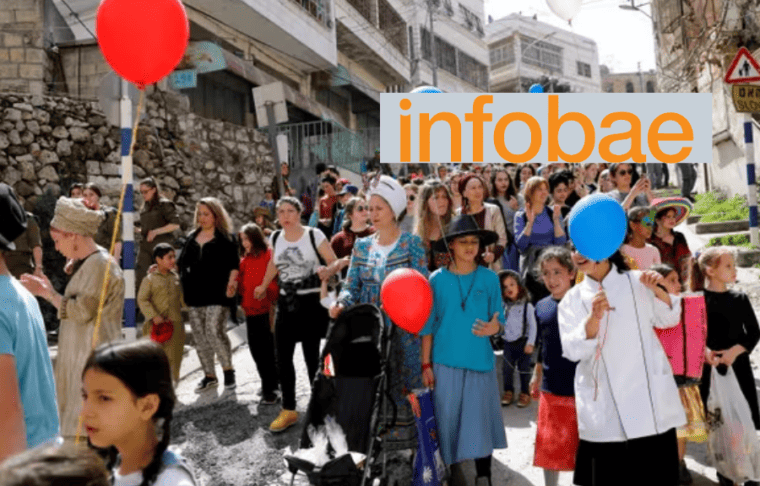Purim: generalization is societies’ hell

As human beings, we look for quick and simplified answers to understand complex situations, but this tendency has serious consequences.
By Isaac Sacca
Mar 22, 2024 02:30 a.m. A.R.
Israeli settlers, some in costume, take part in celebrations marking the Jewish holiday of Purim, in the West Bank city of Hebron (Reuters)
On the 14th of the Hebrew month of Adar, or the 15th of the same month in Jerusalem and a few other cities (this year 2024, from the night of March 23 or 24 until the night of the 24th or 25th respectively), we Jews celebrate Purim. On this holiday, we remember the events narrated in the Scroll of Esther: Jews, on the verge of being exterminated by the evil plans of the Persian minister Haman, were saved by God, through the intervention of Esther and Mordecai.
Haman’s extermination plan was born from his hatred of the Jews. That hatred had arisen because Mordecai refused to kneel before him. Haman, offended because Mordecai did not give him the honor he thought he deserved, began to hold a grudge not only towards Mordecai but also towards all the Jews. Unconsciously or consciously, the generalization mechanism was being activated in his mind.
When a person from a certain group (national, religious, ethnic, sexual, etc.) attacks another, we often demonize the aggressor’s entire group.
When a citizen of a certain nationality acts incorrectly, he or she usually falls into the serious sin of generalizing that all citizens of that country are equal.
In the age of instant information, where judgments are launched at the speed of light, it is imperative to reflect on a practice that threatens social cohesion and mutual understanding: generalization based on individual actions.
As human beings, we look for quick and simplified answers to understand complex situations, but this tendency has serious and harmful consequences.
When a member of a group commits an offence or makes merit, we fall into the trap of generalizing, labeling the entire group according to that action. This is a mistake, since each individual is unique. Every day, we see examples of people from the same group who commit crimes and others who do not.
Life is not a simplistic duality of black and white, but a tapestry of nuances, differences and similarities. Multiple variables influence people’s actions and decisions, so reducing everything to simplistic generalizations is reckless.
Instead of generalizing, it is essential to apply fair judgment and focus on the actual offender rather than tarnishing the reputation of the innocent.
Each person has free will and can choose beyond the group to which he or she belongs. The Torah says, “Fathers shall not be put to death for their sons, nor shall sons be put to death for their fathers”. (Deuteronomy 24:16; 2 Kings 14:6). No one should pay for the sins of the other.
These teachings urge us to avoid generalizations and recognize the injustice inherent in them. The sentence must fall on those who commit offenses, without extending it to an entire group due to the offence of one or a few individuals.
In the current global context, with so many conflicts between religious, national and ethnic groups, we must not simplify and say, “All of them are the same”, but rather analyze, study and focus on the criminal without his fellow human beings being victims of the transgression of one member of their group.
Generalizations have the potential to sow hatred, spark conflict, and cause destruction. Generalization is, in essence, the matrix of societies’ hell.
To build a fair and harmonious society, we must resist the temptation of simplistic generalizations and focus on each person’s individuality and personal responsibility. Only in this way will empathy prevail over prejudice and the abyss that generalizations create in our societies can be avoided.

